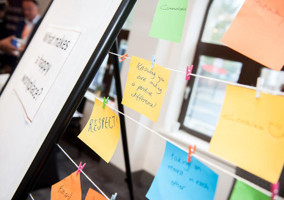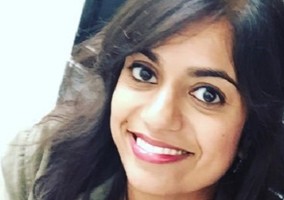There’s so much in life that we are actively encouraged to do by people we know and don’t know. To work hard, to eat ‘x’ new wonder food, to drink plenty of water, to prioritise sleep, to watch the latest trending TV show…the list goes on.
Growing up there were plenty of things I was discouraged - prevented even - from doing. Being comfortable and proud in my own skin was one of them. I can remember countless examples of racist abuse – both direct and indirect – that I experienced growing up. To that list I could also add many different experiences of discrimination from my professional and personal life over the last few years, months and weeks. Racism, discrimination and othering of people who are not considered mainstream or the norm is a persistent and ugly issue facing us all.
As chair of the Expert Advisory Panel on Equality, Diversity and Inclusion for the Institute of Fundraising I am, for perhaps the first time in my life, at nearly 30 years old, able to discuss openly, and without (too much) fear of detrimental consequences, my experiences of trying to thrive as a British Pakistani woman living and working in London. It helps that I have the privilege of doing this amongst 17 of the UK’s brightest and best fundraising experts who are also volunteering to be on the panel.
The panel operates on the idea that diversifying your organisations, and in our case the fundraising sector within charitable and community organisations, so that they are truly representative of the individuals and communities you work with, is possible and necessary.
'Engaged, passionate and ambitious people can move mountains'
Since setting up the panel in February 2018, the IoF has convened two panel meetings and breakout workshops between panel members and others. Through real collaboration and challenge the panel is already having some of the greatest and frankly most inspiring conversations I have ever experienced on equality, diversity and inclusion. They have shown me that a group of engaged, passionate and ambitious people can, do and will move mountains. This is important to note, as before joining this panel, I really did feel some of the issues we are talking about were immovable and so entrenched that my only solution was to blend in and pretend they weren’t happening.
This isn't without its challenges. Forming organisational cultures that genuinely embrace diversity, and making it more than a ‘box-ticking’ exercise, is not straightforward. There are difficult and tough conversations to be had within and between organisations. I for one will get better at challenging the intentions behind the questions and discussions that relate to this work. And let me go on record here now and answer an already emerging frequently asked question - When you select me, or people like me, or people that don’t fit your mainstream or usual moulds, you are not doing me a favour. We are there because we are the right fit. I hope that in time that this will be realised much sooner.
The panel’s discussions recognise that developing organisations that are equal, diverse and inclusive will take time. It cannot be a bolt on. Whilst there are no ‘easy wins’ or ‘quick fixes’ with these systemic issues, there is progress to be built upon. I went back home this weekend to see my family and we reflected on some of the things that have happened to us and our experiences - the overt and covert discrimination was untenable at times. I recalled two incidents in school that illustrate this: first when my headteacher told me that I should expect to be bullied because I was from a Muslim family and 9/11 had happened recently, and the second when the same headteacher allowed his deputy head to incite hatred and share inflammatory and false remarks about Islam in a full school assembly. For context I was from the only Muslim family at the school at the time. I got a public apology for the latter, but never for the former.
Differences should unite us, not divide us - I look forward to a day when whatever ‘labels’, ‘statuses’ or ‘differences’ that are used to describe me, or others, simply don’t matter. We are all unique and different, but there’s always more to connect us than separate us.
A new kind of power
Our panel is role-modelling a new kind of power. The kind I heard being discussed recently by Kathryn Perera, the head of transformation at Horizons NHS, at a Nesta and Power to Change event on People Powered Health. It is a power that is committed to creative, meaningful and lasting change that recognises that people like us, and people that want to help us in our ambitions, all have something to contribute in order to make this happen. You can find out about how we are getting on by visiting our website page or getting in touch with me or any of the panel members.
I know what some of the problems and opportunities are. I’m learning about so many more from the panel and those associated with it. I am sometimes part of the problem. I struggle to speak out when I am discriminated against and to some extent when I see others discriminated against. I even struggled with the idea of joining this panel. It felt like a public embrace of my differences. It meant that I must accept, in a professional context, that I’m different. It means I must rebut openly people’s views that I want special treatment because I’m different. However, through this panel I know that I am now finally ready to be part of the solution in a meaningful, affirming and game changing way. Thanks to the panel and everyone at the Institute for letting me be part of this.
Sufina Ahmad is chair of the Expert Panel on Equality, Diversity and Inclusion for the Institute of Fundraising, and works in corporate strategy at the City of London Corporation.
Civil Society Media would like to thank the Institute of Fundraising for their support with this article.
Related articles












